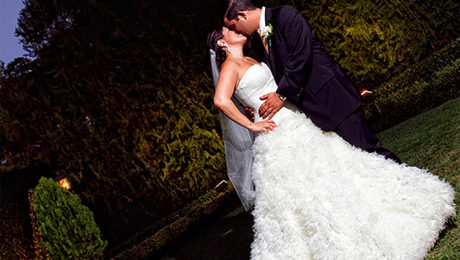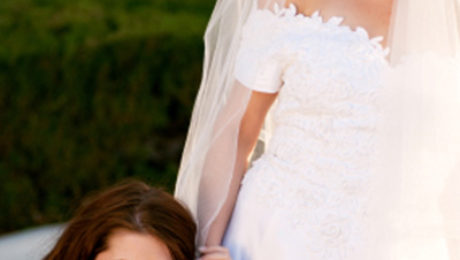Editor’s Blog
Who owns your wedding photos?
What rights do I have over my wedding photos? My photography contract says that my photographer owns them.
Many couples believe that because they are the subjects of the photos, or the ones who hired the photographer, they hold copyright over the wedding images. In fact, it’s just the opposite. Your photographer owns the photos; you do not.
This means that your photographer is free to sell, publish, Photoshop, and/or distribute your images, whilst your authorized use of said images is extremely limited.
The important thing is to know what you’re buying and to negotiate the terms.
Mostly, photographers allow you personal use. This means that you can store in an album and display to friends and family. Others agree to give you, apart from a specified amount of prints, a number of low-resolution images on a CD. They would ask you to pay additional fees for extra prints or high-resolution photos.
Many couples are surprised to know that they only get low-resolution digital photos, which makes it impossible for them to print more copies of the images, or design print photo albums on their own.
Additionally, couples would have to seek their photographer’s permission to submit photos to newspapers, magazines and/or e-zines.
But these are just default terms. You can try to negotiate your own contract with your photographer.
Be sure to ask about the amount of prints and high-resolution images you would receive, as well as the right to post images on social media and submit for editorial use. Read your contract carefully and know what you’re signing up for.
- Published in Editor's Q&A
Seating singles
We have several friends attending our reception, who don’t know our family and who may not know any of our guests. How should we seat them? Should we create a singles table?
Resist the urge to banish friends to a “singles” table, unless they all know each other. It makes more sense to put singles with trusted family members or persons that they’re familiar with. This would make them feel less self-aware and more included and at ease.
If your singles don’t know anyone at the event, and family members are not up to entertaining them on the day, mix them into your close circle of friends. You can accomplish this by splitting your friends into two or more groups and fitting these new faces into each group. Ask one friend to keep an eye on your “singles” to make sure they’re having fun.
Consider strategically placing “singles” amongst more outgoing and gregarious friends or guests, or persons they may have something in common with, or can warm up to.
Resist the urge to seat people together because you think they would be romantically compatible, unless you have the expressed permission of both parties beforehand. No one wants to be on a date they didn’t signed up for.
- Published in Editor's Q&A
Presents from uninvited guest
A friend from university, who I didn’t intend to invite, and who won’t get along with my other friends, sent me a present. How should I respond?
Do not consider the gift an invitation for an invitation. Rather, think of it as a message that you and your fiancé are important to this person. Respond with a “thank you” card.
Consider the circumstances. Does your friend realize that he/she may not be invited? What news about the guest list has been disseminated already? You are not obligated to invite this person, but if you decide to, the invitation should go out right away, if the others were sent already.
- Published in Editor's Q&A
Plus-one dilemma
My bridesmaid is upset because I didn’t allow her a plus one (my fiancé and I told her that we were only inviting married couples). What should I do?
Who you invite is at your discretion. Many couples forgo or limit plus ones based on venue or budgetary constraints. Some prefer to be surrounded by only those nearest and dearest to them.
Though it is frowned upon in some circles to exclude spouses (Prince William and Kate Middleton ruffled many feathers doing so), it is widely accepted that less involved partners can be excluded.
Do consider your friend’s circumstances. Does she feel singled out because your other friends are married or engaged? Is her intended plus one a serious boyfriend? It’s okay to have separate rules for members of the bridal party; but if you enforce the rules in this instance, be sure to do so across the board.
- Published in Editor's Q&A




